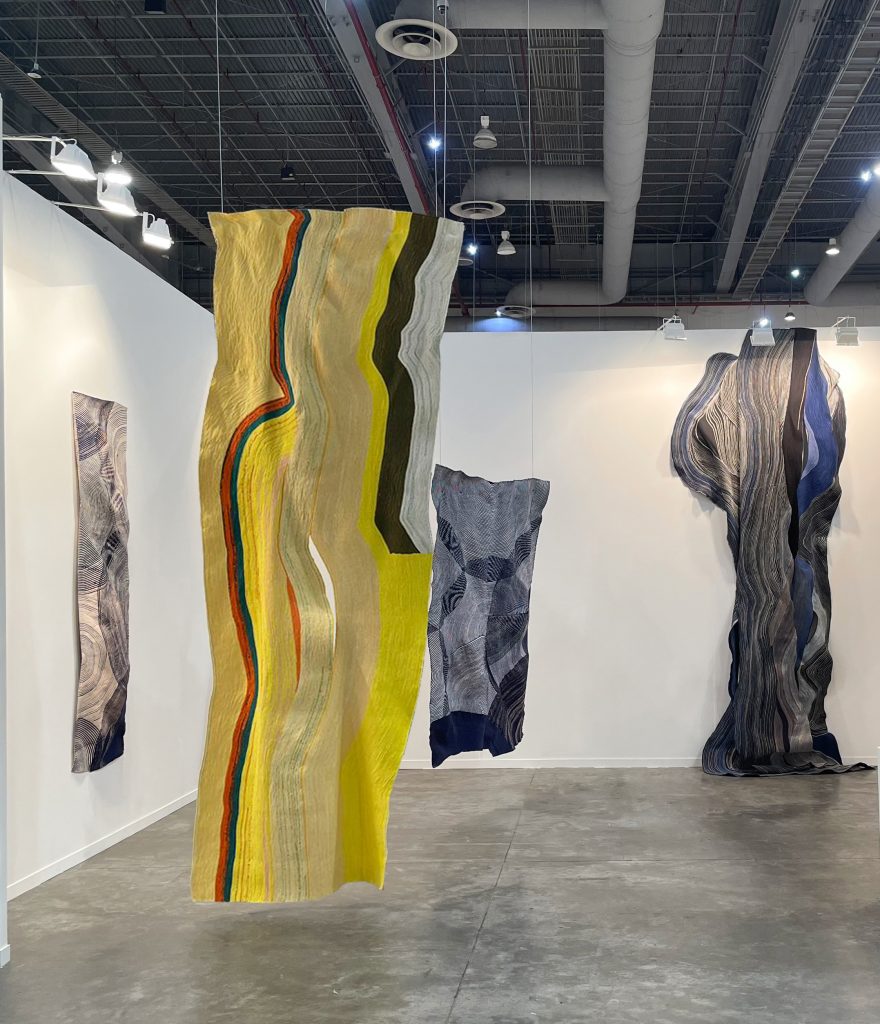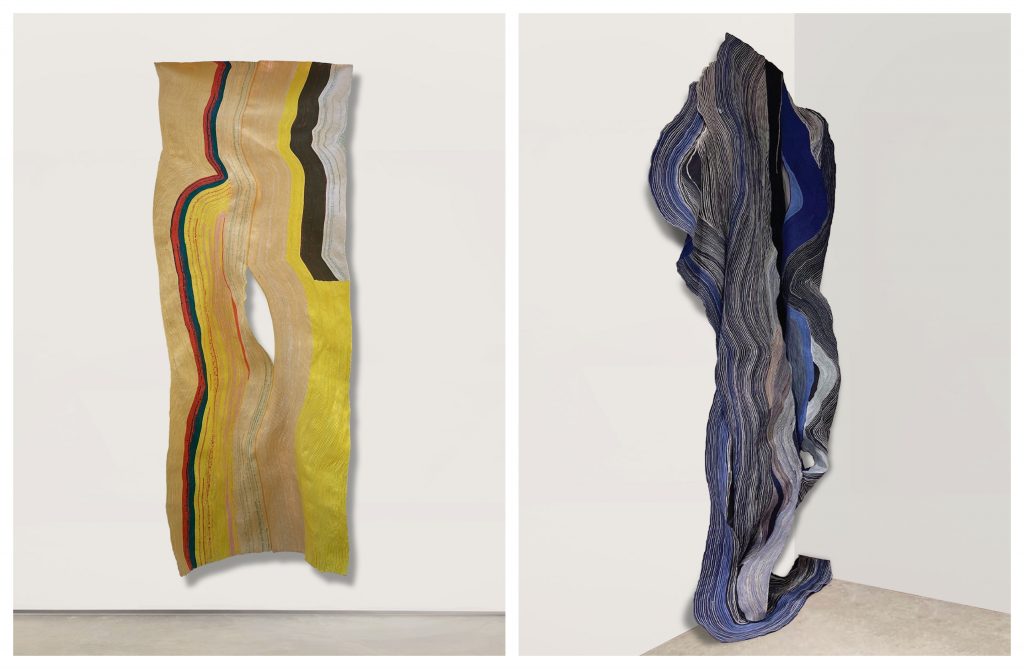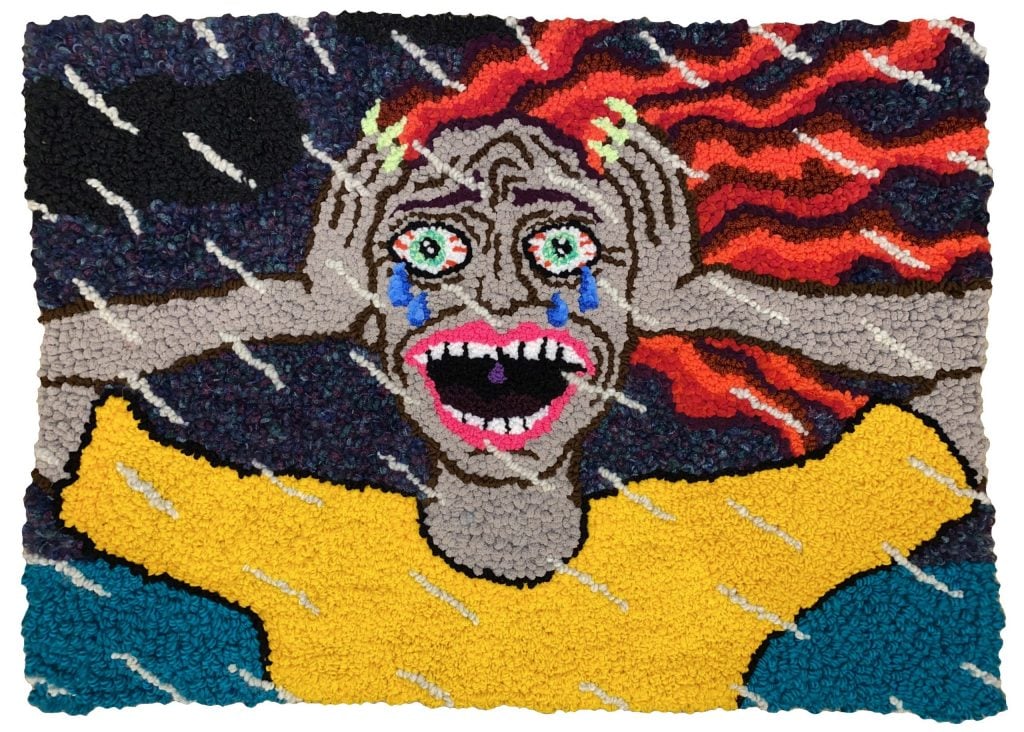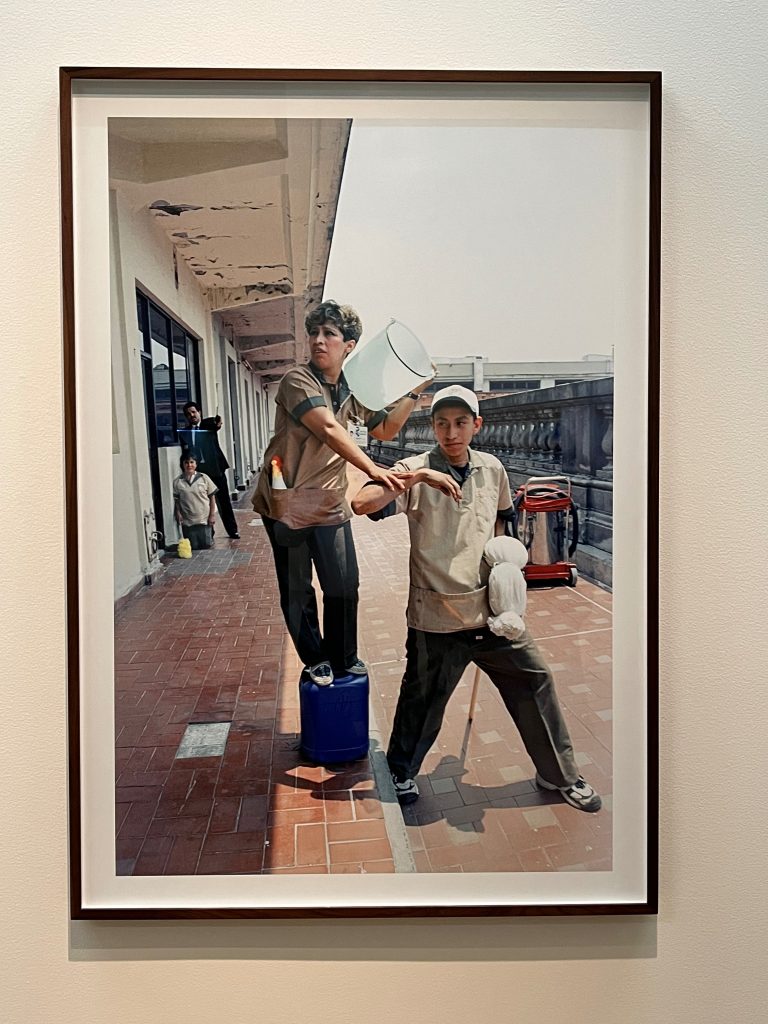Art Fairs
Mexico City’s Zona Maco Fair Showcases an Eclectic Range, From Poignant Photographs to Provocative Textiles
The broad range of art on display proudly bucks aesthetic trends.

The broad range of art on display proudly bucks aesthetic trends.

William Van Meter

The biggest Latin American art fair, Zona Maco opened its 19th edition this week in Mexico City. It’s a decidedly international affair, with galleries hailing from 29 countries. But with 51 percent of the 216 exhibitors coming from Mexico, there is an unmistakable regional flair. “You can feel that it has Latin American personality,” said the fair’s artistic director Juan Canela. “This is something we work for.”
In contrast to some other art fairs, this one was light on bombastic kookiness, metaverse hokum, and blatant selfie bait. Instead, the assemblage was more about slow-burning standouts—paintings that kept me coming back to them repeatedly as I wandered the aisles. Here are a few of the booths and artists that caught my eye.

An installation view of JD Malat’s Zona Maco booth. Paintings by Georgia Dymock (left) and Ghanian artist Kojo Marfo (right) flank a triptych by Zümrütoğlu. Courtesy of JD Malat.
“I’ve been coming for the past four years,” says Jean-David Malat, founder of London’s JD Malat gallery. “The public is amazing, the collectors are educated, the culture is exciting. It’s why I’m back every year.” His booth, featuring new works by several of the gallery’s artists, added magnetic gravitas to the mix. “There has been amazing feedback for the Turkish artist Zümrütoğlu,” he noted. “We have had so many requests. He is very appreciated by Mexican and American collectors.”
Zümrütoğlu’s arresting, heady triptych Tripoot (2022) was on reserve and expected to sell for $80,000. Three of Ghanian artist Kojo Marfo’s figurative paintings have sold in the $50,000 to $60,000 range, while a Georgia Dymock painting sold for $35,000 and one of Chinese artist Ming Ying’s vivid figurative abstractions went for $18,000.

Josefina Concha E., La mirilla (2022) (left) and Sueño de agua que cae, se transforma (2021) (right). Courtesy of Praxis.
Praxis gallery dedicated their booth to Chilean artist Josefina Concha E.’s exquisite craft and ethereal vision. She’ll be having a solo show at the gallery’s New York outpost in April, and specializes in intricately handwoven, sculptural tapestries that riff on female embodiment and empowerment. Some were suspended from the ceiling and floated, ghostlike; others tumbled amorphously from the wall. By the second day of the fair, a midrange piece was acquired for between $20,000 and $25,000, and others had received deserved buzz.

Megan Dominescu, Tears Mix With Rain (2022). Courtesy of Anca Poterașu Gallery.
Bucharest’s Anca Poterașu Gallery featured a very different expression in textiles. The Romanian artist Megan Dominescu (who is also part of DJ duo Miss Clitoral) takes a more brash, cartoon-punk approach to her hand-hooked, narrative-heavy rugs. In one, a dog holds a human by a leash and impatiently waits for him to shit. No More Mr. Nice Guy, in which Jesus cruises down the highway on a Harley, shooting a gun, found a taker at Zona Maco, while Tears Mix with Rain (2022)—her frazzled, fuzzy take on Munch’s Scream—was on reserve.
LGM Galería, of Bogotá, Colombia showcased recent works by Cuban artist Dagoberto Rodríguez. His intricate architectural watercolor depictions of Legolike bricks stood out with their retro-futurist vibe. Prices ranged from $28,000 to $58,000 for the bigger ones, but they had not found early buyers—surprising, considering the Madrid-based artist’s large body of work.

Dagoberto Rodríguez, Corredor 17 (2019). Courtesy of LGM Galería.
The O.G. CDMX contemporary heavy-hitter, Kurimanzutto, offered a tight, ruminative edit made up of mostly Mexican artists like Carlos Amorales, Abraham Cruzvillegas, and Gabriel Orozco, whose abstractions ranged from minimal to action-packed. But it was a pair of striking large-scale photographs by Miguel Calderón, from his 1998 “Employee of the Month” series, that particularly resonated with me. They depicted custodial staffers armed with mops and other cleaning supplies. There was beauty in composition, but also grace and dignity. Calderón was on hand at the booth to reminisce about the images, which got their start at the Museo Tamayo.

Miguel Calderón, Empleado del mes #5 (1998), in Kurimanzutto’s booth at Zona Maco. Photo: Angela Kelley.
“I was supposed to do a site-specific work there,” the artist recalled. “I started going every day and researching, befriending the people that were cleaning. I felt empathy for them. There were white marble floors and they never stopped cleaning them, although they were already clean. The museum was under renovation, and I couldn’t see the works. So one day they described the paintings from memory, and we went to the roof and recreated them.” Calderón continued, “People look at the art, but don’t pay any attention to people. We established a relationship, and this was the result.” A showstopping three-decade survey of Calderón’s work, “Aesthetic Material Available,” is currently on view at the Museo Tamayo through March 3, 2023.
Zona Maco is at the Centro Citibanamex in Mexico City, February 8–12, 2023.